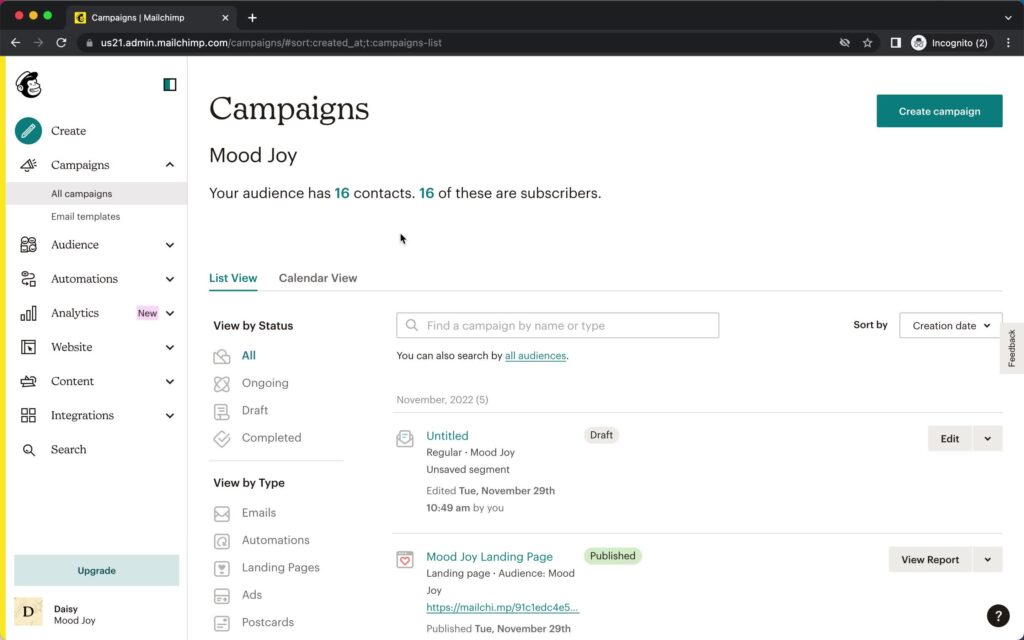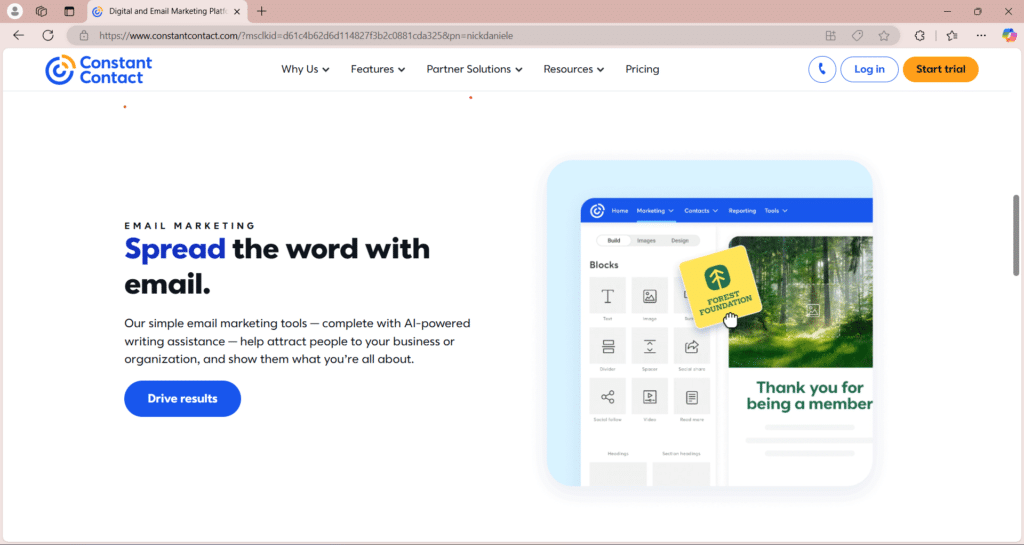In the fast-paced world of digital marketing, email remains a powerhouse. Did you know that email marketing delivers an average ROI of $42 for every $1 spent? But here’s the catch: the tool you choose can make or break your strategy. If you’ve been Googling “Mailchimp vs Constant Contact,” you’re in the right place. Let’s break down these two heavyweights and find out which one deserves a spot in your marketing toolkit.
Why Your Choice Matters
Picture this: You’ve crafted the perfect email campaign, but your tool’s clunky interface and limited features hold you back. Frustrating, right? With countless email marketing platforms out there, Mailchimp and Constant Contact consistently rise to the top. They’re both packed with features, but they cater to different needs. Understanding their strengths and weaknesses will save you time, money, and a few headaches.
The Basics of Email Marketing Tools
Before diving into the specifics, let’s set the stage. Email marketing tools are designed to help businesses create, manage, and analyze email campaigns. Whether you’re a beginner or a seasoned marketer, the right tool can:
- Save Time: Automate repetitive tasks.
- Increase Engagement: Personalize emails for better open and click-through rates.
- Boost ROI: Track performance to refine your strategy.
That’s why choosing the right platform is critical—it directly impacts your results.
Mailchimp: The Versatile Contender

Overview:
Mailchimp is like the Swiss Army knife of email marketing. It’s versatile, user-friendly, and loaded with automation capabilities. Whether you’re just starting out or managing large-scale campaigns, Mailchimp has something for everyone.
Key Features:
- AI-Powered Insights: Suggestions for subject lines, send times, and audience segmentation.
- Drag-and-Drop Editor: Design emails without touching a single line of code.
- Customer Journey Builder: Automate your campaigns with ease.
- Analytics: Detailed reports to track open rates, clicks, and ROI.
Pricing:
- Free Plan: Up to 500 contacts.
- Essentials Plan: Starts at $13/month.
- Standard Plan: Starts at $20/month.
- Premium Plan: Starts at $350/month.
Ideal For:
Small to medium-sized businesses (SMBs), startups, and solopreneurs.
Use Cases:
- Automating welcome emails for new subscribers.
- Sending abandoned cart reminders for e-commerce.
- Segmenting audiences for targeted campaigns.
Success Story:
“Mailchimp’s automation tools helped us cut our email creation time in half. Our open rates increased by 20% in just three months!” – Rachel Lee, E-commerce Entrepreneur.
Pros:
- Robust free plan.
- Intuitive interface.
- Comprehensive analytics.
Cons:
- Costs can escalate for larger lists.
- Limited customer support on lower-tier plans.
Constant Contact: The Reliable Specialist

Overview:
If Mailchimp is the jack-of-all-trades, Constant Contact is the dependable expert. It shines in simplicity and customer support, making it a favorite for beginners.
Key Features:
- Event Management Tools: Promote events and track RSVPs.
- Social Media Integration: Run ads and track performance.
- List Building Tools: Grow your audience effortlessly.
- Email Templates: Hundreds of customizable options.
Pricing:
- Core Plan: Starts at $12/month.
- Plus Plan: Starts at $45/month.
Ideal For:
Small businesses, non-profits, and event organizers.
Use Cases:
- Managing RSVP lists for events.
- Sending regular newsletters to keep subscribers engaged.
- Running seasonal promotions for small businesses.
Success Story:
“Constant Contact’s event tools helped us increase webinar attendance by 30%. Their support team walked us through every step.” – Alex Johnson, Non-Profit Director.
Pros:
- Excellent customer support.
- Great for event-driven campaigns.
- User-friendly interface.
Cons:
- Fewer advanced automation features.
- Outdated interface compared to competitors.
Mailchimp vs Constant Contact: Head-to-Head
1. Ease of Use:
- Mailchimp’s modern interface is ideal for tech-savvy users.
- Constant Contact is straightforward and beginner-friendly.
2. Pricing:
- Mailchimp offers a robust free plan, but costs rise with list size.
- Constant Contact starts cheaper but lacks a free option.
3. Automation:
- Mailchimp wins with advanced automation and AI features.
- Constant Contact keeps it simple with basic workflows.
4. Templates:
- Mailchimp offers fewer templates but with higher customization options.
- Constant Contact provides a wide variety of ready-to-use templates.
5. Support:
- Mailchimp provides email support on paid plans.
- Constant Contact offers phone support and detailed onboarding.
6. Scalability:
- Mailchimp scales well for growing businesses.
- Constant Contact is better suited for small businesses and non-profits.
Tips for Beginners
If you’re just starting out, here are a few tips to help you choose and use your email marketing tool effectively:
- Define Your Goals: What do you want to achieve? More sales, engagement, or leads?
- Start Small: Utilize free trials or plans to understand the tool.
- Focus on Design: Use templates to create visually appealing emails.
- Test and Analyze: Experiment with subject lines, content, and send times. Check analytics to refine your strategy.
- Leverage Automation: Start with simple workflows like welcome emails or thank-you notes.
Making the Choice
Choosing between Mailchimp and Constant Contact depends on your priorities. Are you looking for advanced automation and analytics? Mailchimp might be your best bet. Prefer a straightforward tool with excellent customer support? Constant Contact has your back.
What’s Your Next Move?
Both Mailchimp and Constant Contact have their strengths, but the right choice boils down to your specific needs. Take advantage of their free trials to explore their features firsthand. Remember, the best tool is the one that simplifies your work while maximizing your results.
Ready to dive in? Share your experiences or questions in the comments below. Let’s keep the conversation going—because great marketing starts with informed decisions!

